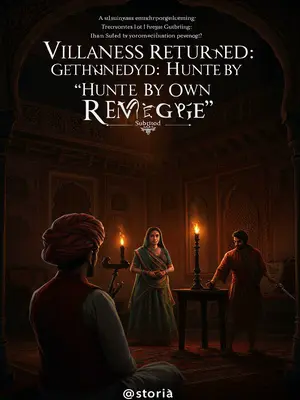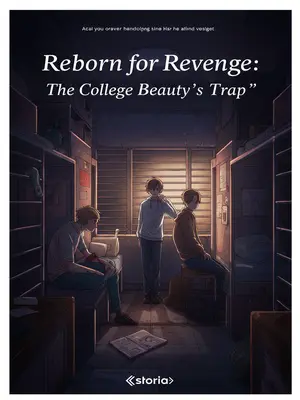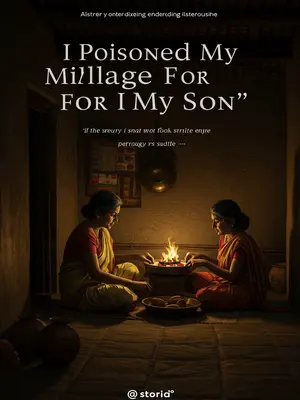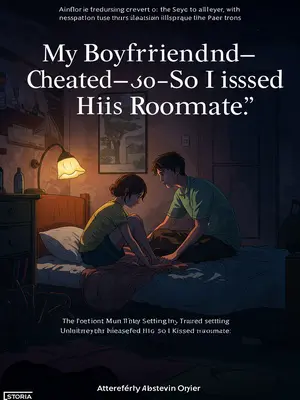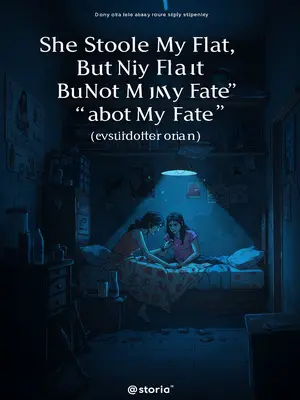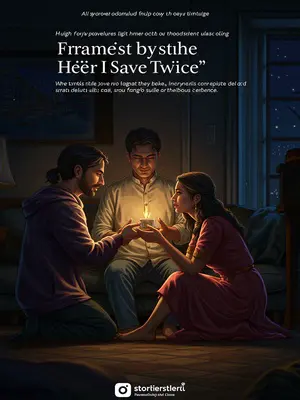Chapter 3: Confession and Doubt
When police found Kunal Verma, he was working at a photo studio in his hometown, Rajpur.
Rajpur—a dusty town two train rides away. The local inspector, Pandeyji, told us, “Bhaiyya, yahan toh sab ek dusre ko jaante hain.” But this time, no one suspected a thing.
Kunal looked up from his photo prints, calm, almost as if he’d been waiting for us. No panic, no protests—just quiet resignation, like a man with nothing left to lose.
The interrogation was smooth. He confessed to all crimes and described every detail.
He answered every question calmly. “Yes, I killed them. I used the kitchen knife. I left through the drain.” The constable fumbled his pen, unused to such easy confessions.
Time, method, weapon—every detail matched. Yet everyone was left with a bigger mystery.
Amit and I exchanged glances. For a moment, even the old wall clock seemed to stop ticking. In this job, people lie, cry, plead—but Kunal? He gave us everything, and somehow, that felt even more wrong.
Kunal’s motive was vague.
He spoke barely above a whisper, as if the act itself meant nothing—no anger, no regret.
No matter how we questioned him, Kunal only said: “No reason. I just wanted to kill.”
I stared, searching for a crack in his composure. Nothing—not a flicker of remorse.
It sounded like a psychopath’s words.
Amit muttered, “Pagal hai kya?” The others shifted uneasily, as if Kunal’s calm was infectious.
“Three people died horribly, but would a vicious killer, escaping, kindly save an innocent girl and risk being caught? Kunal, this doesn’t fit a psychopathic killer.”
My instincts, sharpened over years of chasing thieves and dons, screamed at me. “You saved Priya, but claim to be a monster? Baap re, something’s off.”
Kunal fell silent.
For the first time, a flicker of emotion crossed his face. He looked away, jaw clenched.
We suspected an accomplice. Kunal denied it. “The CCTV only covers the main road. If you use the drains, wear a wig, change clothes, you can avoid being tracked.”
He explained his escape with an almost obsessive detail. “I watched the area for days. Disguised as a plumber, used the drainage pipes. Changed kurta and sandals three times.”
His records were clear: 30 years old, no criminal history, hometown Rajpur, over 200 km from Pune.
The file was thin. Kunal had never even gotten a traffic challan. His Aadhaar, ration card, school certificates—all checked out.
In 2005, his younger sister accidentally drowned. After board exams, the family moved to Kaveripur for ten years. In 2015, his parents died, and he returned to Rajpur as a photographer.
There was a faded photo of Kunal and his sister—two teenagers by the river, smiling shyly. His father, a retired bank clerk, looked on proudly. Nothing to hint at a killer.
A month ago, he came to Pune, avoided all CCTV, and killed the Mehra family.
His Pune landlord remembered him as a quiet tenant, always on time with rent. “Thoda ajeeb tha, lekin bura nahi tha.”
He handled the scene with care, left no trace—yet saved Priya. Maybe she reminded him of someone.
As I replayed events, I wondered—did Priya remind Kunal of his past?
In recent years, Kunal had no close female acquaintances. My gaze landed on Ritu Verma.
I scanned the file—Ritu Verma. The name lingered like the aftertaste of strong chai.
Amit pulled up Ritu’s records. Priya looked different, but their voices were similar.
Amit enlarged both photos. “Sir, look—alike nahi hain, but the tone, the softness—same same.”
That was it. In the dark, Kunal heard a familiar voice and decided to save her.
A chill ran through me. Sometimes, the smallest details can unravel the tightest knots. Maybe, for a moment, Kunal thought he was saving his own sister.
“Quick, check Ritu’s cause of death.”

